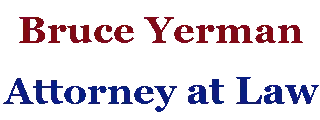By , Leave a Comment

Table of Contents
What Is an I Card?
An “i card” is an NYPD document. It notifies police officers that a particular person is the subject of an NYPD investigation.
The person named in an i card is “wanted” by police.
The person named in an i card could be:
- A person police want to arrest.
- A “person of interest” who police want to question – either as a “suspect” or as a “witness”.
If you’re the subject of an i-card, always follow this rule: Don’t Speak to Police.
Is an I Card a Warrant?
An i-card is not a warrant.
Police officers issue i cards. Only judges may issue warrants.
However, like warrants, i cards usually provide a basis for police to legally arrest you.
Is an I Card Worse than an Arrest Warrant?
Being named in an i card has the same significance as being the subject of an arrest warrant.
If you’re the subject of an i card, police believe they have a lawful basis to arrest you.
If you’re the subject of an arrest warrant, police believe they have a lawful basis to arrest you, and a judge agrees with them.
Whether you’re named in an i card or an arrest warrant, you will be arrested. Consult a criminal defense lawyer immediately.
How Do I Know If I Have an I Card?
You might learn that you’re named in an i card in a number of ways:
- When police pull you over for a traffic infraction, the officer tells you an i card “popped” when he ran your driver license.
- A detective calls and invites you to the precinct to answer some questions.
- A detective calls and asks you to come to the precinct to be arrested.
- Police arrive at your home while you’re there.
- Police arrive at your job while you’re at work.
- Your family member, your roommate, or a neighbor tells you that police stopped by looking for you.
- You learn that someone filed a police report against you.
There is no central number you can call to find out if you’re the subject of an i-card.
If you believe you’re the subject of an i card, a lawyer can contact relevant precincts on your behalf, to find out about it. You could do this yourself, but you shouldn’t, because doing so would require you to speak with police – something you should never do.
Can I Avoid Getting Arrested?
If police intend to arrest you based on an i card, there’s usually nothing you can do to prevent the arrest from happening.
Two rare exceptions:
- You have an ironclad alibi. For example, you’re accused of picking someone’s pocket in Times Square at midnight on New Year’s Eve, and you can prove that you were in jail (or the hospital, or Australia) at midnight on New Year’s Eve.
- Videotape proves your accuser is mistaken or lying.
If you believe you might be able to establish your innocence to avoid getting arrested as the person named in an i card, you’re probably wrong.
Consult a criminal lawyer before deciding whether to have your lawyer provide evidence to the police. Don’t contact the police yourself, because you should never speak with police.
What Should I Do If I have an I Card?
If you find out that you have an i card, contact a criminal lawyer immediately.
Your lawyer will:
- Contact the police.
- Notify police that you’re represented by counsel. (By law, police may not ask you questions when they know you have a lawyer.)
- Find out why police are looking for you.
- If police intend to arrest you, arrange your voluntary surrender.
- Try to arrange a desk appearance ticket rather than a full-blown arrest.
- Appear in court with you at “arraignment” (the first court appearance after arrest, where you plead “not guilty”).
- Prepare you to post bail at your arraignment.
If an i-card has your name on it, the situation won’t go away until you’re arrested.
Never speak with police if you have an i-card. The risk is too great that:
- You will “incriminate yourself” (say something that could be used as evidence against you); or
- Police will falsely claim you incriminated yourself.
Don’t contact the police yourself. Hire a lawyer to contact the police for you.
What Will Happen When I Surrender on an I Card?
When you surrender on an i card:
- Police will fingerprint you.
- Police will photograph you.
- Police might try to question you (unless your lawyer has contacted them, or you demand a lawyer).
- Police might place you in a lineup.
- Police will give you a “desk appearance ticket” (a “DAT”) directing you to show up in court for arraignment on a certain date, or
- If you don’t receive a DAT, police will transfer you from a local precinct to “Central Booking” (a holding area where you will wait for the District Attorney to file paperwork in court).
- You will plead “not guilty” in court at your arraignment, and a judge will determine whether to set bail on you.
Free Consultation
Bruce Yerman is an i card lawyer in New York City. His office is located in Suite 1803 of 299 Broadway in Manhattan. If you’d like a free consultation to discuss criminal defense or family law, call Bruce at:
Or email Bruce a brief description of your situation:

Leave a Reply